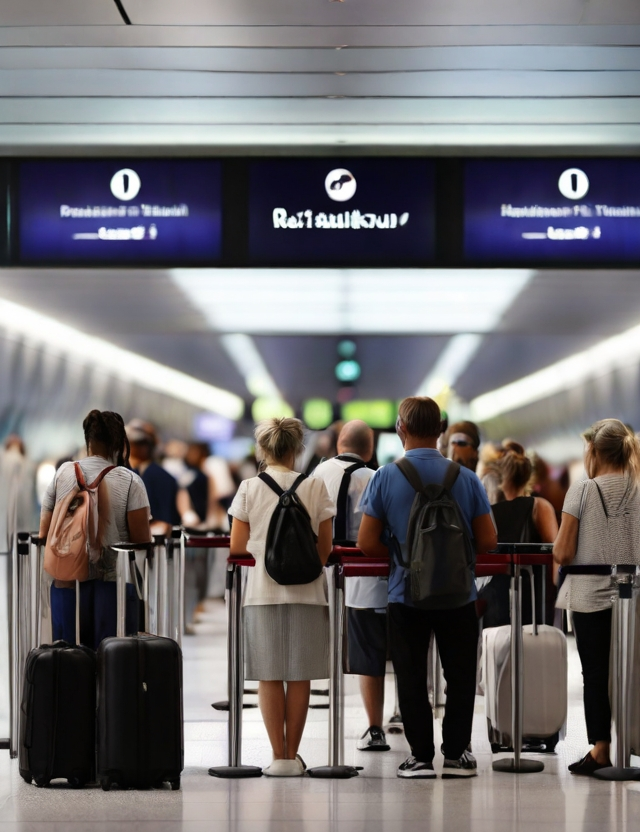In the ever-evolving world of air travel, airlines continuously fine-tune their pricing strategies to maximize profits while remaining competitive in the market. Understanding the dynamics of airline pricing can shed light on why ticket prices fluctuate and how airlines strategically test passengers’ tolerance for high prices.
Introduction: Understanding the Dynamics of Airline Pricing
Airline ticket prices are not arbitrary; they are influenced by a myriad of factors, both internal and external. From operational costs to consumer behavior, airlines navigate a complex web of variables to determine the optimal pricing strategy.
Factors Influencing Airline Ticket Prices
Seasonality
The time of year significantly impacts air travel demand, with peak seasons driving prices higher due to increased demand.
Demand-Supply Dynamics
Fluctuations in demand and supply play a crucial role in pricing. Airlines adjust fares based on factors such as route popularity and seat availability.
Fuel Costs
Fuel prices directly affect airlines’ operational expenses, leading to adjustments in ticket prices to offset rising costs.
Psychological Pricing Strategies Employed by Airlines
Dynamic Pricing
Airlines utilize sophisticated algorithms to implement dynamic pricing, where fares fluctuate based on various factors in real-time.
Price Discrimination
Segmenting customers based on factors like time of booking, destination, and purchasing behavior allows airlines to implement price discrimination strategies effectively.
Ancillary Fees
Additional charges for services like baggage, seat selection, and in-flight amenities contribute to airlines’ revenue streams while keeping base fares competitive.
Testing Fliers’ Tolerance for High Prices
Airlines conduct experiments to gauge passengers’ willingness to pay premium prices for certain services or conveniences. By analyzing consumer behavior and market trends, airlines identify opportunities to maximize revenue without alienating customers.
Impact on Consumer Behavior
Customer Segmentation
Understanding the diverse needs and preferences of travelers enables airlines to tailor pricing strategies and services to specific market segments.
Loyalty Programs
Frequent flyer programs incentivize customer loyalty by offering rewards and benefits, influencing purchasing decisions despite fluctuating prices.
Search for Alternatives
Consumers increasingly explore alternative travel options, such as budget airlines or alternative airports, to mitigate the impact of high ticket prices.
Strategies for Consumers to Navigate High Prices
Booking in Advance
Securing tickets well in advance often results in lower fares, especially during peak travel seasons.
Flexible Travel Dates
Being open to flexible travel dates can uncover significant savings, as prices vary depending on the day of the week and time of year.
Comparison Shopping
Utilizing online booking platforms and fare comparison websites empowers consumers to find the best deals across multiple airlines.
Conclusion
In a dynamic industry driven by fluctuating demand and competitive pressures, airlines continuously innovate their pricing strategies to maximize profitability. Understanding the factors influencing ticket prices and adopting savvy consumer tactics can help travelers navigate the complexities of airfare and secure the best possible deals.
Unique FAQs
- How do airlines determine ticket prices? Airlines employ complex algorithms that consider factors such as demand, competition, seasonality, and operational costs to determine optimal pricing.
- Why do ticket prices vary between airlines for the same route? Different airlines have unique cost structures, service offerings, and pricing strategies, leading to variations in ticket prices for the same route.
- Are there peak times when ticket prices are generally higher? Yes, peak travel seasons, holidays, and events typically result in higher demand for air travel, leading to increased ticket prices.
- Do budget airlines offer cheaper fares than traditional carriers? Budget airlines often offer lower base fares but may charge extra for amenities and services that are included in traditional carriers’ ticket prices.
- How can consumers find the best deals on airfare? Keeping an eye on fare sales, booking in advance, staying flexible with travel dates, and comparing prices across multiple platforms are effective strategies for finding the best deals on airfare.



